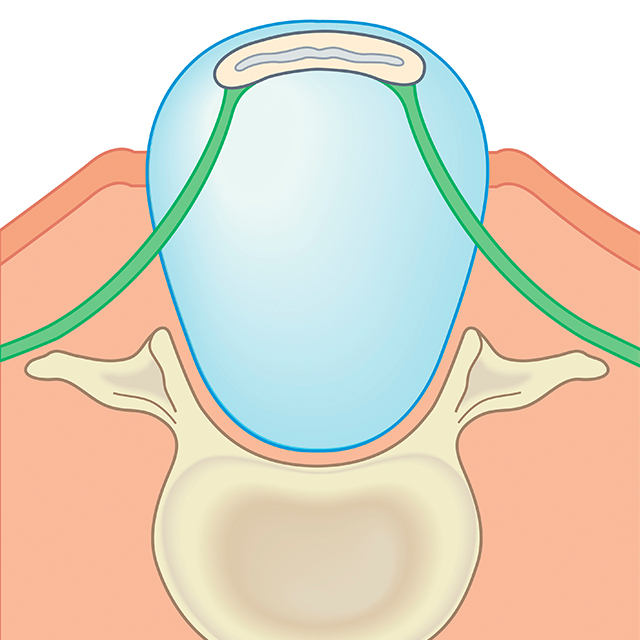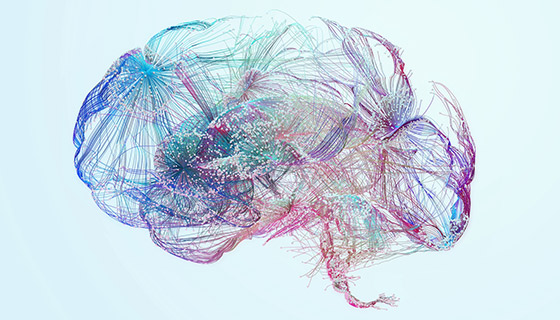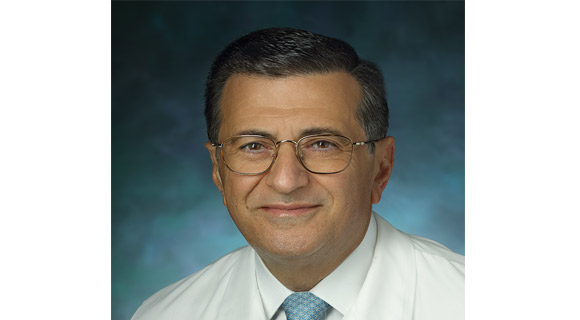Treating Neurofibromatosis with Dedicated Expertise
Specialists across Johns Hopkins Medicine come together at the Comprehensive Neurofibromatosis Center

Neurofibromatosis is one of the most common of all genetic diseases, affecting as many as one in 3,000 people worldwide. This group of three genetic conditions — neurofibromatosis type 1 (NF1), neurofibromatosis type 2 (NF2) and schwannomatosis — is also one of the most complex. Because these conditions are characterized by tumors that grow along the nerves, they can affect nearly any part of the body, including skin, bones, brain, eyes and the heart.
To effectively diagnose, follow and treat the various manifestations of neurofibromatosis, patients often need multiple specialists spread across a wide variety of fields — a tall order for nearly every medical center in the U.S. But at the Johns Hopkins Comprehensive Neurofibromatosis Center, patients receive coordinated care from world- renowned experts throughout Johns Hopkins Medicine.
“The more expertise we bring in, the more tools we have in our tool belt, then the more we can offer our patients with neurofibromatosis,” says Allan Belzberg, who directs the peripheral nerve surgery program at Johns Hopkins.
Although NF1, NF2 and schwannomatosis are each caused by a different genetic variant, many aspects of their management are the same, Belzberg says. For example, most patients with any of these three conditions require regular imaging to track tumor growth, genetic testing to find causative mutations that might be shared with relatives and treatments that may include pain management, surgery, chemotherapy and radiation. On Friday mornings, a team of practitioners from adult and pediatric neurology, neurosurgery, neuro-oncology, radiation oncology, imaging, genetics and more meet to review cases and collaborate on their most challenging scenarios. During most of those meeting, clinicians in these fields with expertise in neurofibromatosis hold a combined clinic to see patients at the Johns Hopkins Health Care & Surgery Center — Green Spring Station.
Because these conditions can affect numerous systems in the body, the Comprehensive Neurofibromatosis Center often refers patients to other specialists at Johns Hopkins Medicine, including ophthalmologists, orthopaedists and pain management specialists.
“If a treatment currently exists, we offer it,” Belzberg says.
“The more expertise we bring in, the more tools we have in our tool belt, then the more we can offer our patients with neurofibromatosis.”
Allan Belzberg
He adds that beyond providing all available treatments, the center’s experts are heavily invested in research to better understand neurofibromatosis and to develop novel approaches. Johns Hopkins runs a biobank to store and analyze patient tumor samples that are used in numerous bench studies and clinical trials. These efforts have led to several critical advances in neurofibromatosis research, such as a study published last year showing that combining a pair of experimental drugs has the potential to treat malignant peripheral nerve sheath tumors — the leading cause of death among people with NF1 under age 40 — with fewer harmful side effects than current options.
Johns Hopkins experts — including Jaishri Blakeley, the center’s director — founded and lead the Neurofibromatosis Therapeutic Acceleration Program, which conducts and funds breakthrough research to accelerate the development of treatment options for NF1-related plexiform and cutaneous neurofibromas.
“I hope that our neurofibromatosis research eventually puts me out of business,” Belzberg says. “Treatment options that could eventually replace surgery are very much in the foreseeable future.”
Learn more about the Johns Hopkins Comprehensive Neurofibromatosis Center.
For Clinicians Clinical Connection
Clinicians, discover the latest in research and clinical innovation from Johns Hopkins experts. Access educational videos, articles, CME courses and other resources from our world-renowned institution.
Related Reading
-
Treating Patients with Neurologic Conditions from Prenatal Stages Through Adulthood
In the Johns Hopkins Center for Fetal Therapy and the Greenberg Skeletal Dysplasia Center, multidisciplinary teams of experts provide rare treatments and follow patients throughout their lifetimes.

-
Pediatric Neurosurgery Research on Hydrocephalus and Chiari Malformation at Johns Hopkins
Johns Hopkins physicians are working on innovative solutions to some of neurosurgery's most pressing problems, including those involving hydrocephalus and Chiari malformation.

-
Treating Patients With Complex Brain Tumors
Neurosurgeon Youssef Comair specializes in craniotomies to remove falcotentorial meningiomas.

